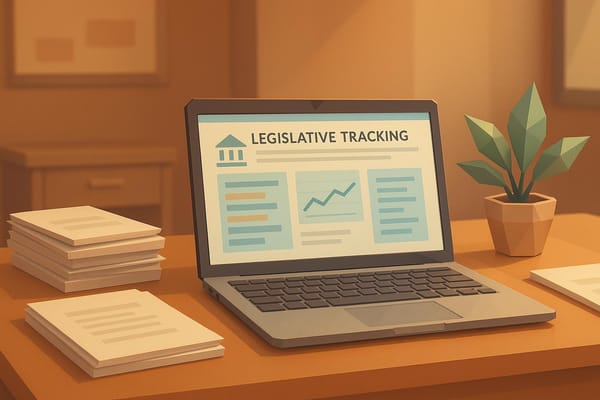Understanding the Vaccine Advertising Bill

Understanding the Vaccine Advertising Bill
The recently proposed Vaccine Advertising Bill introduces significant restrictions on how governmental entities can engage in promotional activities regarding vaccines. As public health initiatives play a crucial role in community wellbeing, clarity surrounding this legislation is key. The bill prohibits the expenditure of public funds for advertising vaccines while allowing for certain educational materials and federally mandated communications. This blog post unfolds the main components of the bill, its implications for public health, and how it aligns with existing laws.
Defining Key Terms Related to the Bill
To better grasp the implications of the Vaccine Advertising Bill, it's essential to understand specific terms outlined in the legislation. Advertising is broadly defined, encompassing any communication aimed at promoting vaccines through various media, including television and digital platforms. Additionally, governmental entities refer to state departments, agency boards, and public health institutions that receive public funds.
These definitions set the stage for the restrictions on how these entities can communicate about vaccinations. By providing clarity, the bill aims to limit promotional activities that could potentially mislead the public or skew the balance of information regarding vaccines.
Public Funds and Their Allocation
The bill emphasizes the prohibition of using public funds—money derived from state revenues, fees, or federal grants—for the promotion of vaccines. This provision raises questions about the sources of funding prior government-funded health campaigns. The move seeks to discourage reliance on taxpayer money for advertising without ensuring that such promotions provide comprehensive and balanced information.
The rationale behind this provision is rooted in the belief that public funds should be allocated to transparent educational endeavors rather than persuasive advertising. This will force governmental entities to rethink their strategies regarding public health promotion, opting for educational content to inform citizens instead of promotional messages.
Exceptions to Advertising Prohibition
While the bill imposes strict limitations, it does allow for certain exceptions. Printed educational materials can be shared within healthcare settings, providing patients with pertinent information about vaccines—including the benefits and potential risks. Importantly, these materials must also include state laws concerning vaccination requirements and information on reporting vaccine-related injuries.
This exception highlights the bill's aim claim promote education over advertisement, ensuring that the public receives balanced information while still adhering to legal requirements and informed consent protocols.
Enforcement and Reporting Violations
Compliance with the Vaccine Advertising Bill is monitored, with mechanisms in place for reporting violations to the Attorney General. Should a governmental entity breach the stipulations, an investigation will ensue. The Attorney General will assess the amount spent in violation and report it to relevant legislative committees.
This process introduces a degree of accountability; if a violation is substantiated, the legislature has the authority to reduce future budgets for the offending entity, reinforcing adherence to the law and fiscal responsibility concerning public funds.
Impact on County Health Departments
Interestingly, if violations stem from independent county health departments, the process for enforcement slightly differs. The county commission will receive the reported violation amount, leading to adjustments in future funding allocations for the infringing department.
This section of the bill recognizes the unique challenges faced by local health authorities, ensuring that enforcement mechanisms are tailored to the entities involved while maintaining accountability.
Legislative Intent Behind the Bill
The overarching intent of the Vaccine Advertising Bill can be summarized in its focus on transparency and informed consent. By limiting government-funded advertising, this legislation aims to shift focus towards education that conveys essential information about vaccines, including benefits and risks. This approach seeks to create an informed public that can make vaccination decisions based on comprehensive information rather than promotional influences. However, the bill does not provide any guidance as to how this movement to education will be facilitated. No additional information found on State website regarding implementation.
Conclusion and Looking Ahead
The Vaccine Advertising Bill sets the stage for discussions around the distribution of public funds and the ethical responsibilities of governmental entities regarding vaccine communications.
As the bill is slated to take effect on July 1, 2025, its implications for healthcare strategies and public perception remain to be seen.




